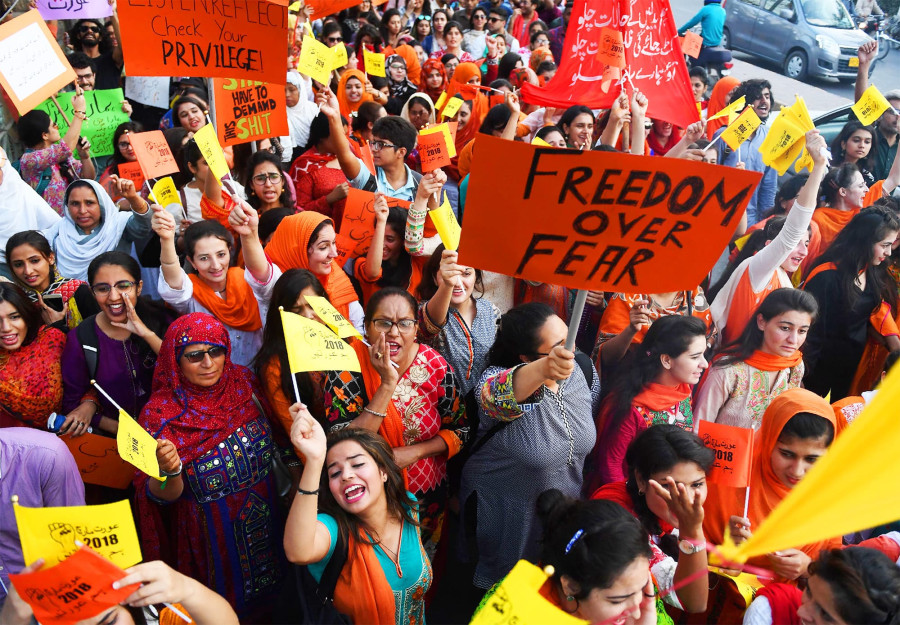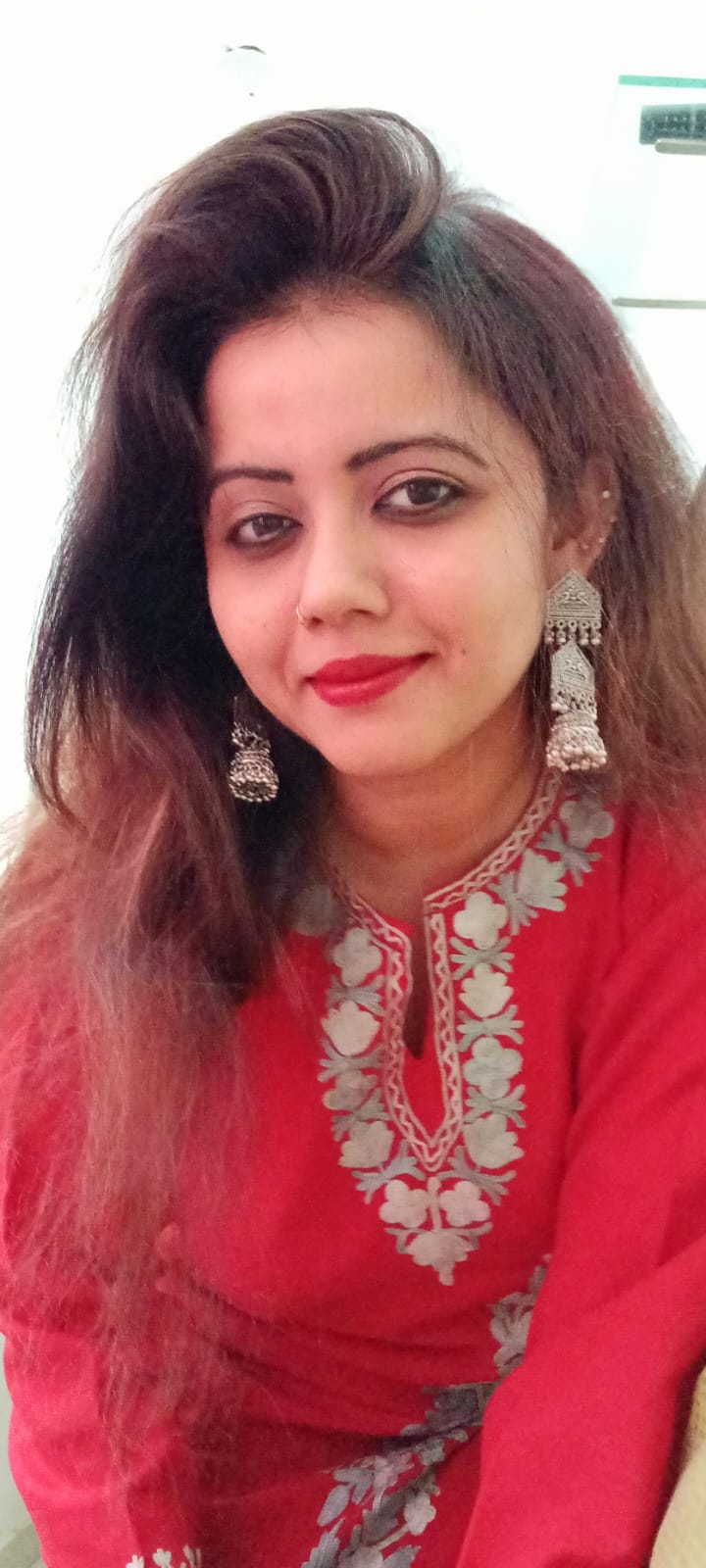Books
Sabyn Javeri’s ‘Hijabistan’ interrogates many shades of hijab
Stories of oppression of desires and life choices of women and their valiant fights to break the chains of Pakistan’s patriarchal society
Fathima M
“Sex” remains a dirty word in Pakistan, New York Times opinion writer Mohammed Hanif once penned, “As if just saying it was the same as doing it. We don’t even talk about sex with the person we’re doing it with.” This fact, despite Pakistan’s exponentially growing population, Hanif quips.
In conservative societies like Pakistan, where any discourse about sex is taboo, acknowledging a woman’s sexual desire is a direct route to hell. Women are at the centre of notions of modesty and shame, the definition of which is whittled down to wearing a hijab in the case of women and maintaining fidelity (again a woman’s burden) within the institution of marriage.
In her book Hijabistan, a collection of 16 stories, Pakistani author Sabyn Javeri dares to unveil the myriad ways in which the hijab—the head cover some Muslim women wear—becomes a metaphor for a woman’s ideology and identity: liberal, conservative or in-between. Using the hijab and the idea of modesty as central trope, Javeri explores a vast array of issues, including marriage, sexuality, honour and dignity,that define a woman’s identity in average Pakistani-Muslim households.
In the story ‘The Date,’ a young, hijab-clad woman indulges in a sexual relationship with a married man. For this young woman, her hijab is simply a cover for her body and not her desires. But tensions arise, for the man comes to suspect that she already had sexual experiences. He becomes infuriated.
In ‘The Urge,’ a teenager finds solace in cosmetics and clothes restricted in her household. She, along with her aunt, finds ways to indulge in the banned objects. A woman’s dignity is smashed, to the pleasure of wealthy and famous men in the story ‘Radha’. The men get away with it, and that woman later becomes a downtrodden prostitute. She is then used repeatedly, and broken once more.
In ‘An Irreplaceable Loss’ a wealthy mistress prohibits any kind of love affair in her house, only to find her young maid “on the formal dining table, under the driver”. In ‘The Adultress’, a dissatisfied housewife finds solace in writing and love outside marriage.
‘The Lovers’ explores the agony of Pakistani immigrants in the UK, especially their obsession with purdah, modesty and morality. The hijab is a strong motif in the story, a means to curb a woman’s desire in the name of saving a family’s reputation. ‘A World Without Men’ explores a lesbian relationship. Saira a hijab-clad, progressive girl finds no acceptance as a lesbian woman and is forced into an arranged marriage with a man. When Ismat Chughtai wrote the short story ‘Lihaaf’ (The Quilt), it sparked furore and was immediately banned. Reading Javeri’s story, one cannot help but draw a parallel between Chughtai’s time and the contemporary times. Much has changed, but much remains to be changed. Lesbianism, for example, remains a taboo subject in much of Pakistani society, as it did during Chughtai’s time, but its depiction in Javeri’s book has not raised any controversy so far, which is a relief.
‘Under the Flyover’ depicts moral policing in Karachi, a preventive measure taken to keep lovers at bay. “Oye, then why are you acting like lovers if you are married ... Why go to park if you are married,” a policeman asks a married couple, exposing how public spaces remain hostile to the idea of romance.
‘The Full Stop’ revolves around taboos of the menstruation cycle, when a young girl is expected not to talk openly about her period. ‘The Girl Who Split in Two’ is a heart-wrenching story of young girls and boys, who, in the name of religion, are fooled into joining the Islamic State organisation. ‘The Good Wife’ depicts how Islam is associated with terrorism and how Islamophobia is so deeply entrenched in the West.
‘Fifty Shades at Fifty’ is the story of a Parsi couple. The husband in this narrative becomes agitated when seeing his wife reading instead of heating food for him. He ironically believes only Muslims treat women badly while, in fact, he is no different. The tale also exposes how there is a severe lack of intimacy and privacy in most Pakistani households.
These are not just stories of oppression of desires and life choices of women, but also scenarios that lay bare women’s valiant fights to break the chains of Pakistan’s patriarchal society. The stories broaden the scope of understanding for hijab-clad women’s identity, as well as their desires and urges, which are all curbed in the name of dignity and religion.
While exposing Pakistani society’s deep-rooted patriarchy, the stories also explore the West’s singular notion that hijab-wearing Muslims are oppressed beings. Hijabistan is an important book that opens up a myriad ways of looking at Pakistani women. Even as Javeri makes it clear that while forcing women to wear a hijab is regressive, a hijab is not the only marker of a woman’s identity. To wear a hijab or not should be the woman’s prerogative, and should not in any case be affected by the opinion of a patriarchal society. Javeri’s Hijabistan is thus a grey space between modesty and immodesty, where women draw the lines.
Fathima M is a PhD candidate at Jawaharlal Nehru University, New Delhi. Her writing has appeared in The Wire, The Daily Star and Wasafiri.
Book: Hijabistan
Author: Sabyn Javeri
Publisher: Harper Collins India, 2019
Pages: 224
Price: Rs 638




 13.16°C Kathmandu
13.16°C Kathmandu










